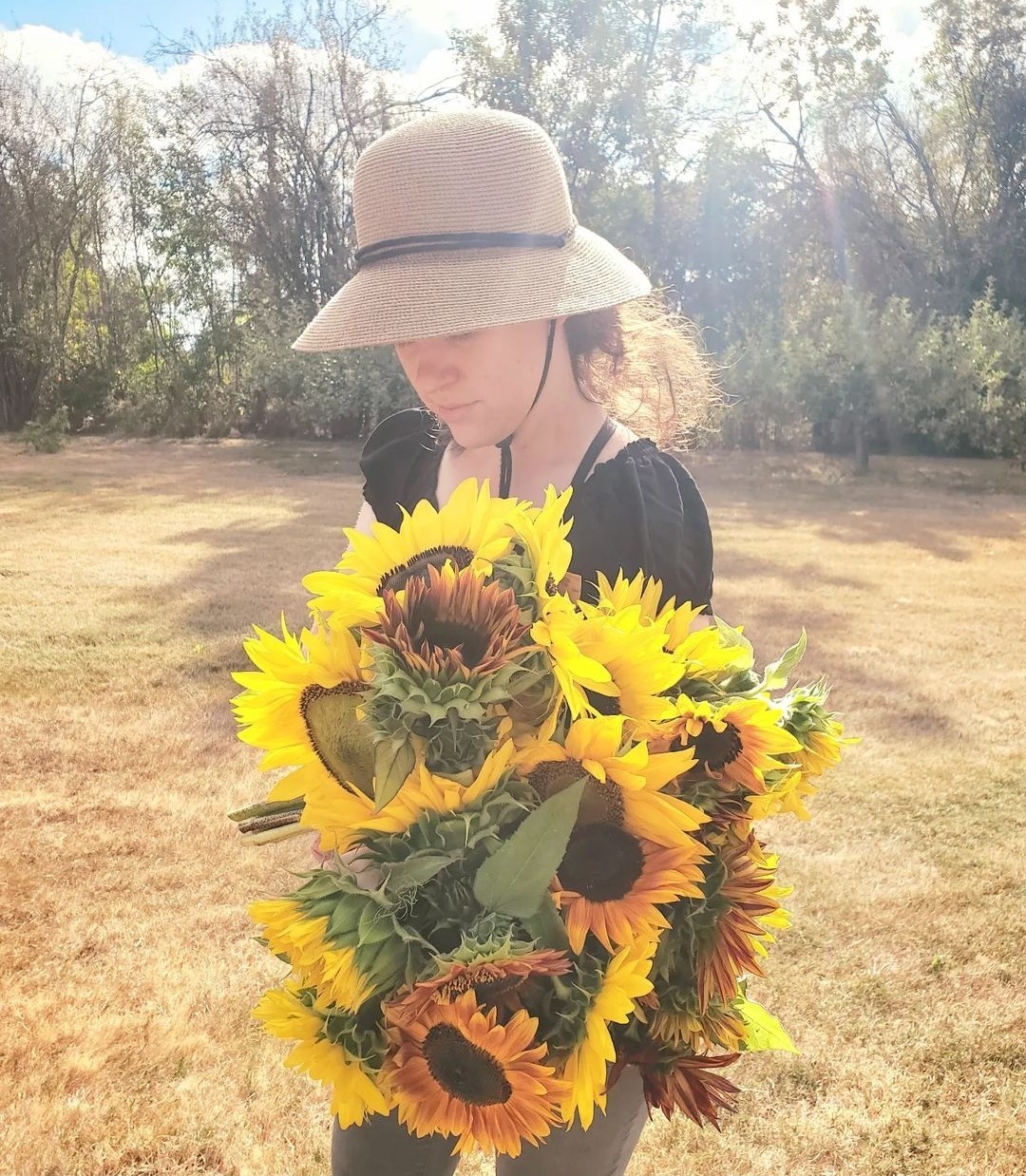We’re excited to introduce you to the always interesting and insightful Audrey Nelson. We hope you’ll enjoy our conversation with Audrey below.
Audrey, looking forward to hearing all of your stories today. Can you tell us the backstory behind how you came up with the idea?
I grew up in the city (Portland, Oregon) but was lucky enough to have a big backyard which my parents poured their hearts and souls into filling with flowers and trees and climbing vines, and so I grew up imagining what my own garden would look like when I was an adult and had a yard of my own. My dream was always move to the country and have my own farm full of animals, and a garden overflowing with flowers. In my late 20’s that dream came true when I moved out to my boyfriend’s (Evan) family farm in rural Oregon and immediately set to work planting and gardening to my heart’s desire. We got rescue pigs from a sanctuary south of us, and when the nursery who was previously leasing out part of the farm parted ways, I knew immediately that I wanted a field of sunflowers I could see from the front window. We had so many sunflowers we didn’t know what to do with them that first year, but it didn’t last long. Just days later, in the midst of the pandemic (of 2020), we were forced to evacuate due to fires burning just a couple miles from us. When we returned a week later, the whole field of sunflowers were droopy and covered in ash. We pulled together what we could and sold them for cents on the dollar at the roadside, hoping to cheer up neighbors and locals affected by the fires. Later that year we were hit by flooding and erosion caused by record-breaking rain and soil issues inherited from the nursery. Each year has brought new challenges- bugs, thefts, droughts, marketing hurdles- but we have continued to grow and learn, expanding and adapting to include new varieties of flowers, or eliminate ones that did not grow well, and find new ways to organically control pest and soil issues. It really is a labor of love, but so rewarding to see the flowers blooming and the joy they bring to everyone who sees them.
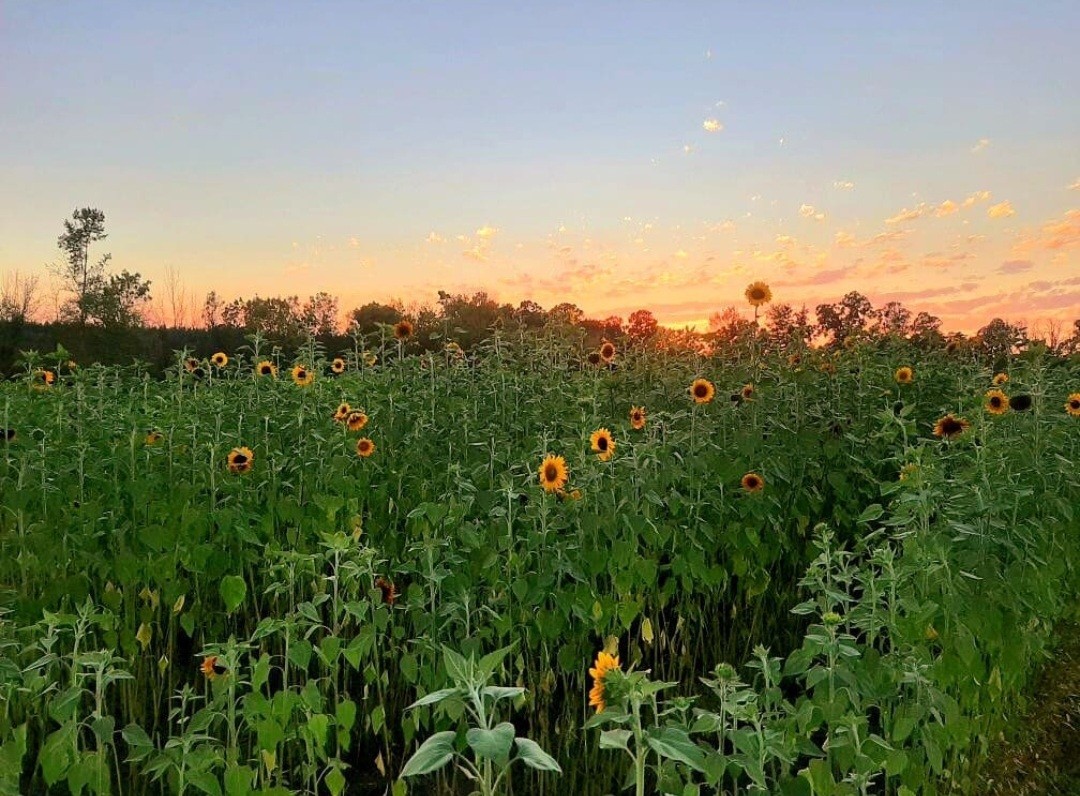
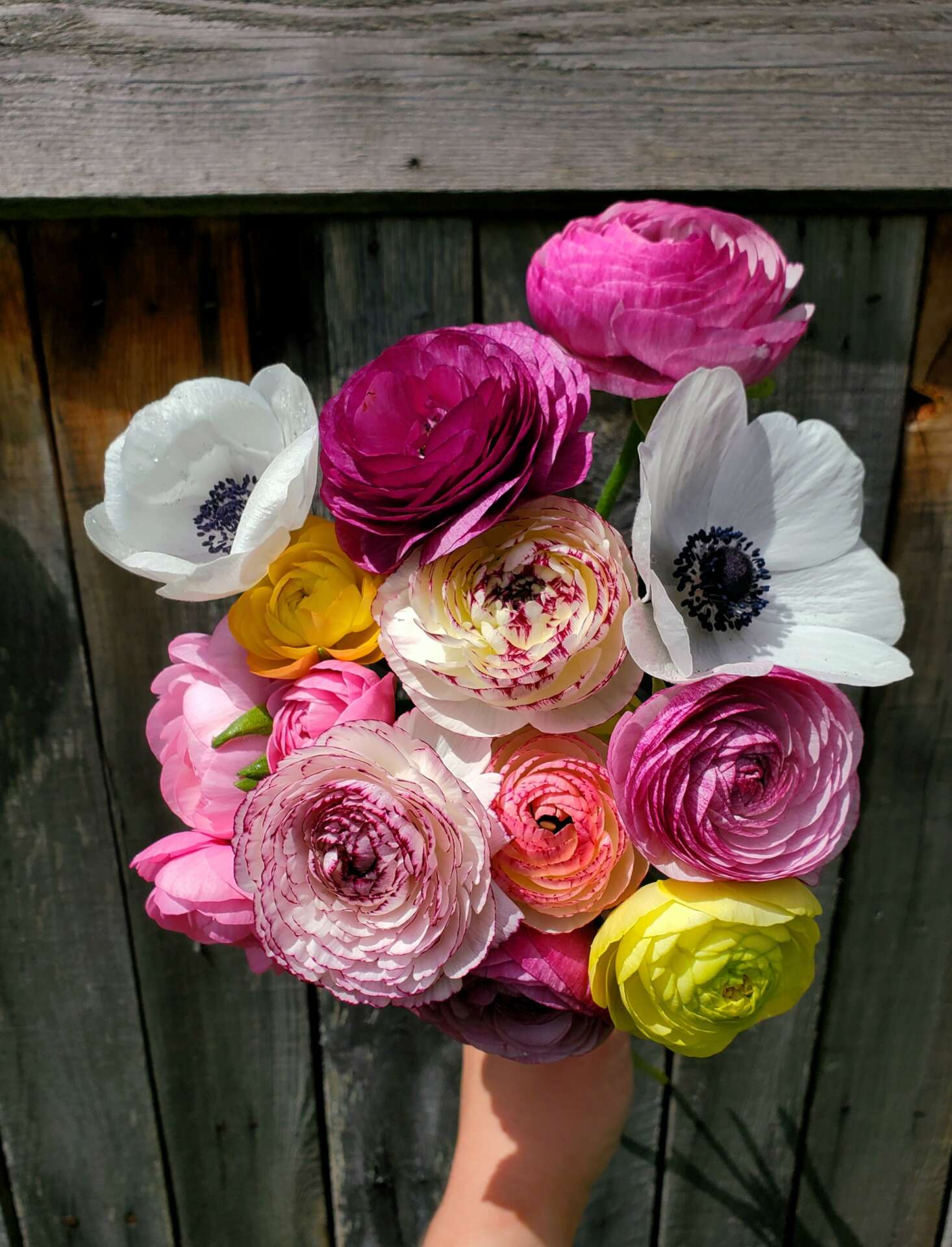
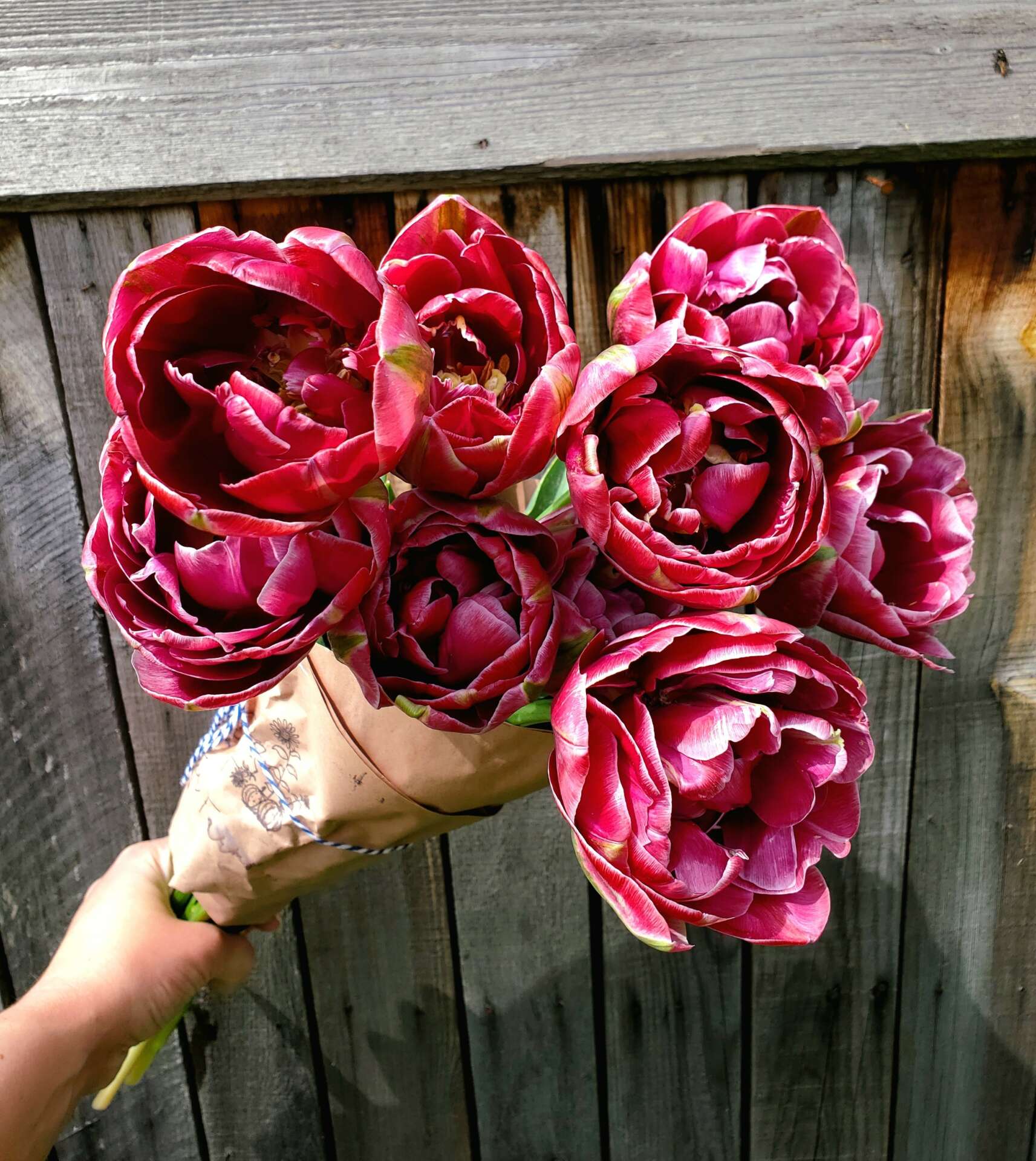
Great, appreciate you sharing that with us. Before we ask you to share more of your insights, can you take a moment to introduce yourself and how you got to where you are today to our readers.
While my dream started out with a garden of flowers to enjoy for myself, I soon realized we could share them with others and still have plenty to enjoy for ourselves. As a full-time college student and part-time employee, funding my gardening hobby proved challenging, so we decided to begin selling flowers and pumpkins at a handmade roadside farm stand that Evan built. We opened a u-pick patch our 2nd Autumn, offering a real hands-on experience where families could pick the pumpkins straight from the vine and sunflowers from the field. All chemical-free and safe, unlike many store-bought options. Along that thinking, I began making and offering all-natural essential oil candles and body products free of anything artificial or potentially harmful. My goal was to offer something that you couldn’t find at the grocery store: locally-made/grown and 100% natural with transparency from ingredient sourcing all the way to the finished product -whether it be bouquet or bath soak. We truly care about the safety and sustainability of our consumers, ourselves, and our land. Another connection between flowers and candles- they make everyone feel good. I have so enjoyed seeing people’s face’s light up when they smell real lavender candles for the first time or snag the last bunch of pink sunflowers,
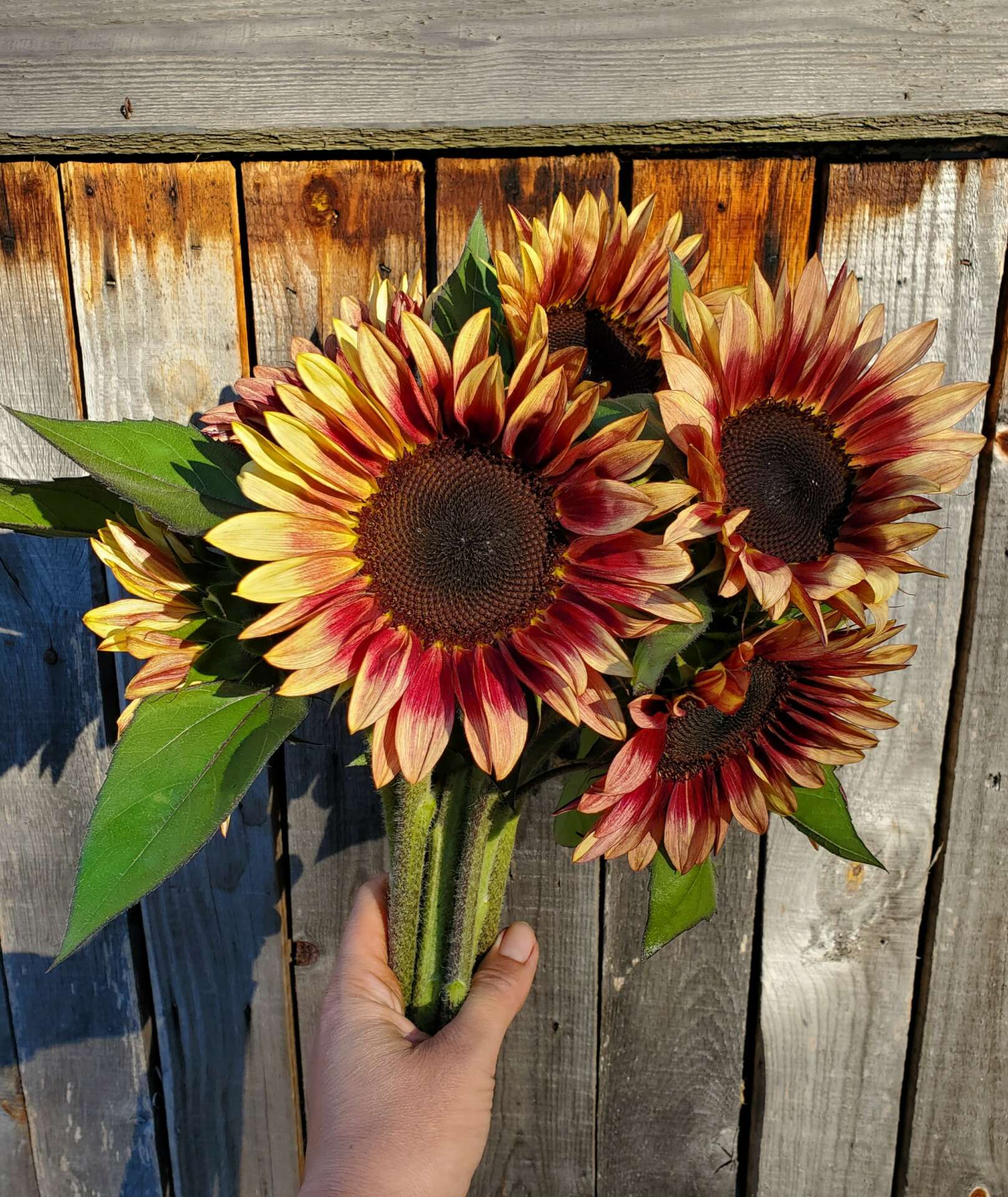
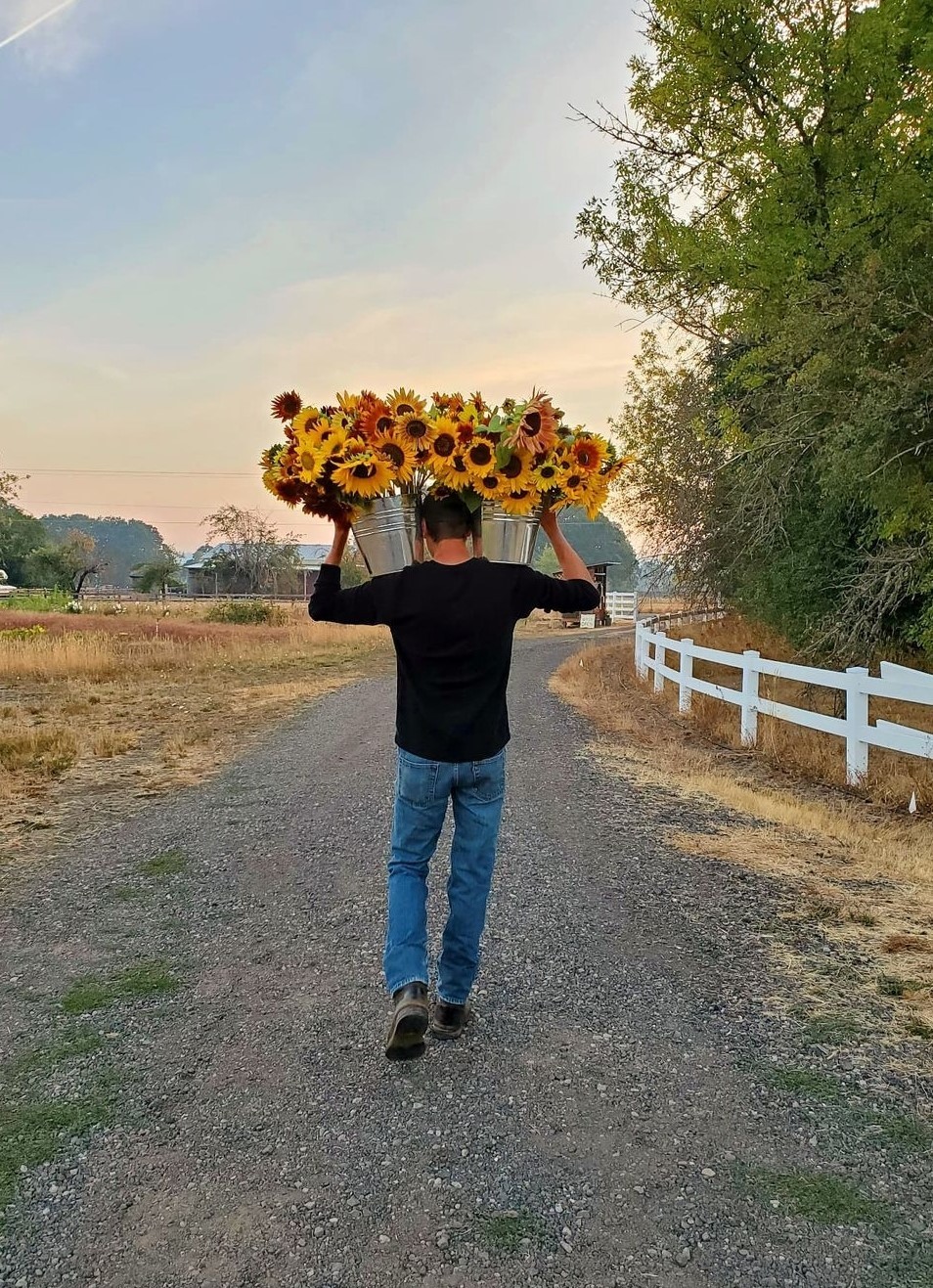
What do you find most rewarding about being a creative?
As an introvert, creating has always been a very important part of self-expression for me. I am always trying to find new creative outlets – hobbies I’ve tried range from cross-stitching, ceramics, metalsmithing, pinning insects, to candle-making. I find that the final product is the cherry on-top of the creative process itself. I like having something tangible that I can share with others, something that you cannot buy in a store. I try to find some time every day, even if it’s 5 minutes, to walk through the flowers or just create, as it has such a powerful effect on my wellbeing.

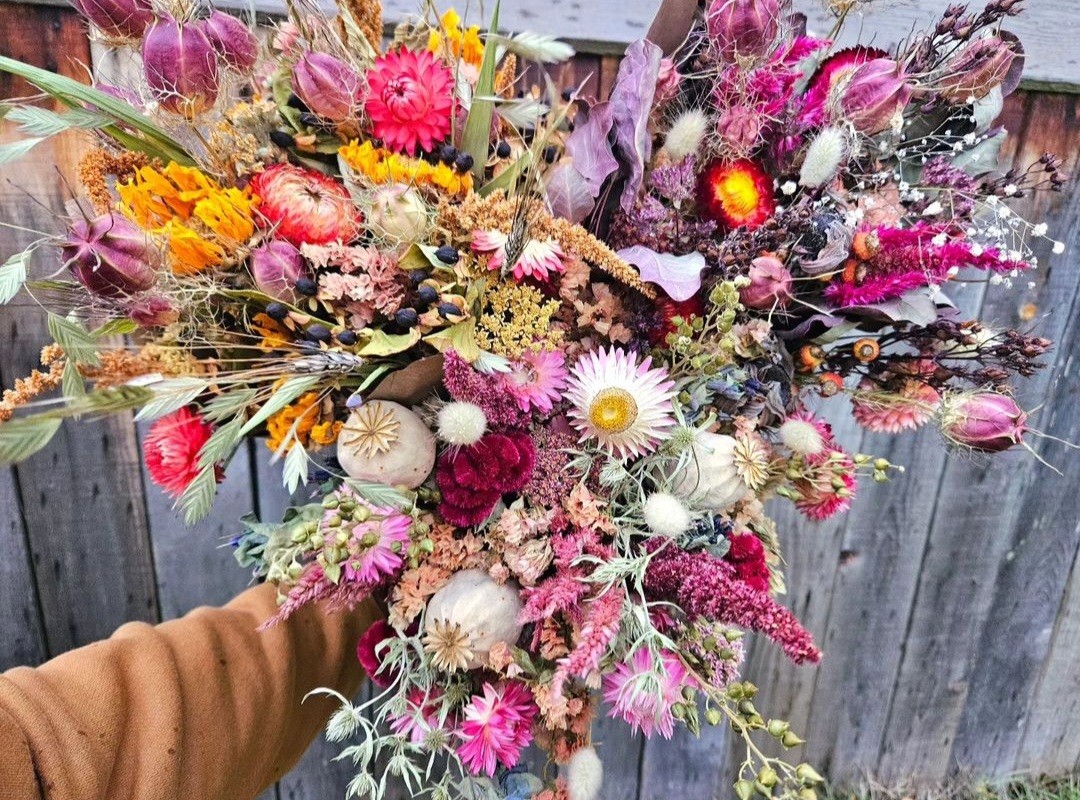
Can you tell us about a time you’ve had to pivot?
Farming is a very unpredictable and challenging field. Each year we face new challenges and must be ready to change course at a moment’s notice. The weather, soil conditions, pest levels all vary year by year. Some years, heavy spring rains or late spring frost delay our ability to plant seedlings out in the field (and ultimately, delay our harvest), while other years, intense heat causes damage to tender plants. Our 3rd year of farming, an intense heat wave brought a week of triple-digit heat (almost unheard of here in Oregon), decimating acres of pumpkins we had planted weeks earlier. Another year, staggering winds snapped hundreds of sunflowers and blew our roadside stand to bits, requiring a re-build. Another, cucumber beetles ate all of our starts to the ground before they even took off. In short, we have to predict that the unpredictable will happen, and always have a backup plan. If a flower variety fails to germinate, in spring, have another quick-growing crop ready to plant as a backup. If one crop is destroyed by pests or drought, we may have to shift the focus to dried flowers, candles and other goods.

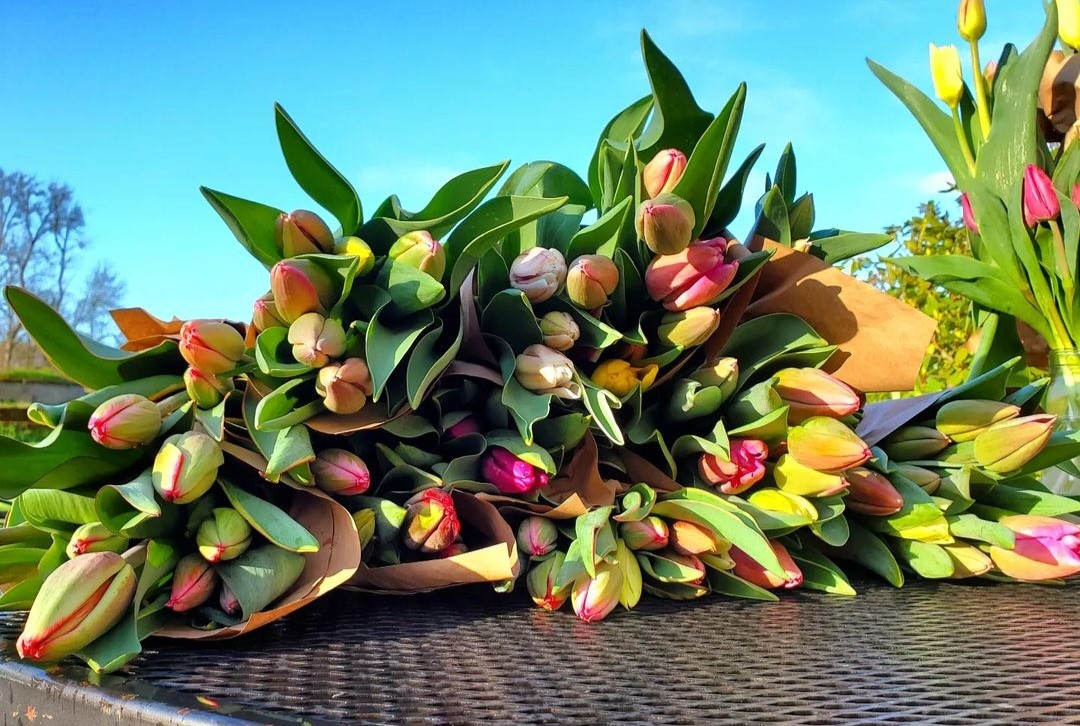
Contact Info:
- Website: www.affolterfarms.com
- Instagram: www.instagram.com/affolterfarms
- Facebook: www.facebook.com/affolterfarms
- Other: https://affolterfarms.bigcartel.com/
Image Credits
Audrey Nelson (Affolter Farms)


